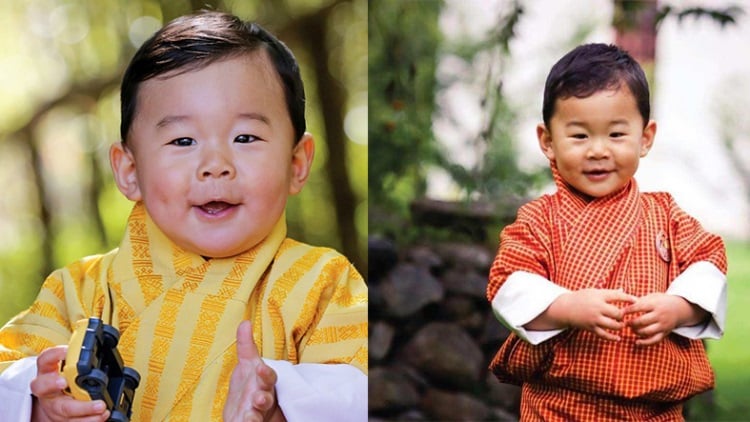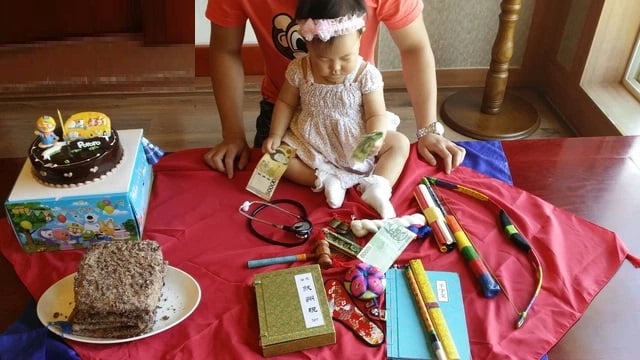Personality and Child Development Research

The Ancient Saying: ‘Personality at Age 3, Destiny at Age 7’
An intriguing study conducted in 1980 by a professor at the Institute of Psychiatry in London tracked 1,000 children from the age of three. This professor documented the personality traits of these children throughout their early years. After 23 years, when these individuals turned 26, he reconnected with them and found that their personalities had remained largely unchanged since their toddler years.
This research provides some evidence for the saying, “tam tuế khán đại” – which translates to “one can observe a person’s personality at the age of three.” However, the concept of “thất tuế khán lão” – “one’s destiny is revealed at age seven” – is far more complex. It implies that destiny is not solely determined by innate personality but is influenced by a multitude of factors, including life events, education, and environmental factors.
Early Education for Building a Strong Personality
Nevertheless, this study also underscores the importance of early education and character-building. From a young age, children need to be nurtured in a positive and loving environment. Laying the foundation for a strong personality during these formative years will profoundly impact their development, especially during adulthood.
Predicting a Child’s Future: The Theory of Multiple Intelligences
Howard Gardner, a renowned psychologist from Harvard University, introduced the theory of Multiple Intelligences. He proposed that every individual is born with at least eight types of intelligence: linguistic, logical-mathematical, musical, spatial, bodily-kinesthetic, interpersonal, intrapersonal, and naturalistic. Some children may excel in language from birth, while others might lean more towards logic or music.
This theory helps explain why education should be personalized to match each child’s abilities and interests. For instance, introverted children may thrive in areas like writing, photography, or music, whereas extroverted children will have an advantage in fields that require communication, such as business, counseling, or public service.
Introversion and Extroversion: Neither Good nor Bad, Just Different Styles

Introversion and Extroversion: A Matter of Preference, Not Superiority
It’s essential to understand that neither introversion nor extroversion is better or worse; they are simply different ways of engaging with the world. Parents should not worry if their child is introverted, quiet, and prefers solitary activities. In fact, this personality type can be a significant advantage in environments that require focus, patience, and creativity.
As mentioned, a child’s personality is shaped from birth and influenced by both genetic and environmental factors. However, the role of parents in nurturing, guiding, and educating their children during their development cannot be overstated. The support and care provided by the family will help shape the child’s character, intellect, and emotions comprehensively.
The Golden Period: The First 1,000 Days of Life
Scientific research has shown that the first 1,000 days of a child’s life are the most critical for brain development. By the age of three, a child’s brain has developed to about 85% of its adult size. This highlights the immense importance of the period from birth to age three in shaping a child’s cognitive abilities, thinking skills, and emotional development.
Therefore, creating a positive, nurturing, and stimulating environment during these early years is essential. Parents and caregivers should focus on providing educational activities, games, and social interactions to foster the development of crucial skills that will benefit the child in the future.
In conclusion, research and theories on child development suggest that a child’s personality is formed from a very early age. Additionally, each child has unique abilities and potentials, emphasizing the need for personalized education to maximize their potential. Parents should not only focus on intellectual development but also create a loving and supportive environment to ensure their child’s holistic growth.
The 4 Zodiac Signs With a Gentle Exterior but an Extreme Lack of Empathy: The Ultimate Chameleon Complex.
Each zodiac sign has its own unique complexities, and today we uncover the hidden depths of four seemingly gentle signs that may surprise you with their lack of empathy. Prepare to be intrigued as we explore the darker side of these astrological signs, revealing their capacity for extreme indifference.





































